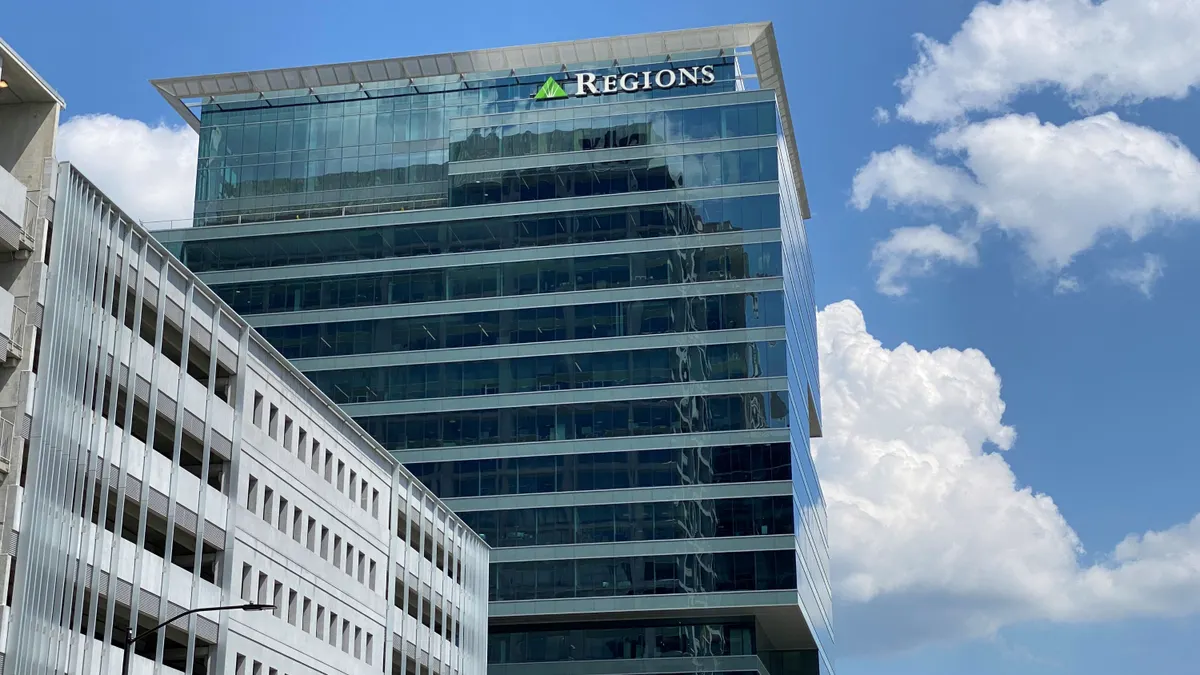In its applications to federal regulators, Capital One is leaning into the argument that it will increase payment network competition by acquiring and elevating the fourth-largest card network, Discover.
In its March 20 application to the Federal Reserve to purchase Discover, McLean, Virginia-based Capital One pointed to the card network’s minimal and declining share of credit and debit purchase volumes, which give the Riverwoods, Illinois-based company “limited current competitive significance,” Capital One contended in the application.
The company also submitted an application last week to the Office of the Comptroller of the Currency.
Dominated by giants Visa and Mastercard, credit and debit network markets “sorely need an injection of competitive rivalry,” Capital One argued in application documents submitted to the Fed.
The $35.3 billion all-stock deal, in which the fourth-largest credit card issuer would acquire the sixth-largest issuer, was announced in February. Capital One executives have said they expect the deal to close late this year or early next. In recent months, the OCC and Federal Deposit Insurance Corp. have signaled that large proposed mergers may face more drawn-out timelines and more scrutiny.
Collectively, the networks of Visa, Mastercard and American Express handled 96% of U.S. credit card purchase volume last year, with Visa responsible for 52%, Mastercard, 25%, and Amex, 20%, Capital One noted in its application, citing figures from industry publication the Nilson Report. Discover’s share, 4% last year, has dipped from 6% in 2011.
In an effort to reverse the decline, Capital One plans to quickly add scale to Discover’s networks, shifting debit and credit volumes to those networks and investing to build brand awareness and expand merchant acceptance, Capital One said in its application.
Capital One “has the resources to make these investments, but Discover does not,” Capital One asserts in its application.
The savings Capital One expects to retain by tapping the closed-loop network will allow Capital One “to invest in and grow its banking product portfolio, including by expanding and making more attractive its consumer-friendly checking and credit card portfolios to the benefit of consumers,” Capital One said.
The lender also noted plans to invest with the aim of improving the payments network’s technology stack and risk management and compliance efforts. By seeking to reduce transaction declines and fraud, and improve payment and fraud dispute resolution processes, Discover’s network will be better positioned to compete with Visa, Mastercard and Amex, Capital One said.
Given possible antitrust concerns, the proposed combination is likely to draw the attention of the Department of Justice. In its application, Capital One contended that the “intensely competitive” credit card industry is diverse and dynamic. The changing nature of issuers’ product offerings and the ease with which consumers can add or switch between credit card providers “prevent the exercise of market power or successful coordinated anticompetitive behavior in any segment of the industry,” Capital One argued.
The company also sought to make that argument with respect to banking competition, which it faces from the likes of JPMorgan Chase, Bank of America and Wells Fargo, and from fintechs and neobanks, including Chime, Ally and Varo, Capital One said.
With more scale and profitability, the combined company and bank can better compete against the biggest banks and larger regional banks, Capital One said. The lender also noted Discover customers would immediately gain access to Capital One’s more than 300 branch and café locations.
The deal would put Capital One ahead of JPMorgan as the largest credit card issuer in the U.S. Still, Capital One’s and Discover’s combined shares of credit card purchase volume — 13.6% — and outstanding balances — 19% — would be “well within safe harbor levels,” Capital One contended.
A number of lawmakers have called on regulators to block the deal, and more than two dozen advocacy organizations have urged regulators to ensure a thorough and transparent review of the merger. In a letter last week to bank regulators, advocates argued the tie-up would increase the combined firm’s market power, potentially disadvantaging depositors, customers, merchants and communities.
Marketplace push-back over the deal has increased, and approval could take longer than Capital One has identified, noted David Schiff, head of retail and consumer banking at consulting company West Monroe.
In making the case to regulators, Schiff expects Capital One to play up the company’s ability to elevate the smallest of the card networks and help Discover overcome its regulatory issues.
To that end, Capital One also flagged the risk and compliance work it expects to undertake with Discover, given the recent regulatory scrutiny Discover has faced.
“Capital One believes it will need to materially strengthen and enhance Discover’s existing risk management functions, and in particular compliance, to comply with both Capital One’s internal standards and those of its regulators,” the acquiring company said in its application. Those improvements “will include extensive work to address outstanding remediation under the two orders and possible future supervisory findings.”
Additionally, Capital One pledged to expand its risk management capabilities by establishing “dedicated teams” to oversee risk management for Discover’s debit and credit networks.



















